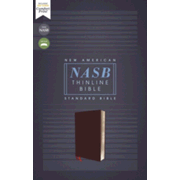In Paul’s epistle to Titus, a local leader of the Church in Crete, Paul exhorted him to use sound doctrine to teach and correct others. Paul also counseled Titus to teach the Saints to be righteous examples, to have hope of redemption through the Atonement of Jesus Christ, and to continue in good works.
From the second chapter of Paul’s Epistle to Titus we learn to be worthy of respect by how we live our lives, being godly and being a great example to others. We should live soberly, righteously, and godly in the present age: Grace teaches us how to live in the present age. We must live soberly (self-controlled) in regard to ourselves. We must live righteously in regard to the people around us. And we must live godly (“to take God seriously”) in regard to our God.
Saving Grace Brings Salvation.
You don’t go out and “get” salvation; it comes to you and you have the opportunity to receive it. Fallen human beings are incapable of choosing God. 1 Therefore, God equips people with a measure of grace that enables ad prepares them to respond to the Gospel (John 1:9). 2 God, through prevenient grace, provides everyone with the ability to respond to him if they choose to. 3

There is one gospel of grace for all men, not merely the elect. 4 God doesn’t have a gospel of grace for some and a gospel of law or self-justification for others. All men who find salvation find it by the grace of God. No rank or class or type of mankind is excluded from the saving influence of God’s grace.
Jesus’ first appearance manifested God’s grace, and his second coming will manifest God’s glory.
God’s Grace Instructs Us
God’s grace “instructing us” declares that grace also operates in the lives of the saved. Grounded in God’s nature, grace makes ethical demands of Christians consistent with His nature. It pictures grace, practically personified, as teaching the believer things in accord with sound doctrine. 5
Paul’s Epistle to Titus, chapter 2, says that God’s grace should instruct us to order our lives aright. Some are quick to turn the preaching of God’s mercy into an excuse for licentiousness, while carelessness keeps others from thinking about the renewal of their life. But the revelation of God’s grace necessarily brings with it exhortations to a godly life.” 6
Grace puts ungodliness and worldly lusts in our past. But grace teaches us to renounce/deny those things, not only to avoid them. In a world where we are tempted to say “yes” to every desire and feeling, the reality of our faith can be demonstrated by what we say “no” to, or by what we are willing to deny
Grace teaches us how to live, in our present/modern world, sensibly, soberly, and self-controlled. We must live righteously in regard to the people around us. And we must live godly, taking God seriously, in regard to our God.
Titus 2:11–12 Reminds Us That God Trains Us to Renounce Ungodliness.
The Gospel then is not a promiscuous and unprincipled doctrine; it is according to godliness, and teaches and promotes godliness; it is a holy faith. Thus, it is a vile slander to charge it with leading to looseness of life and conversation.
Purgatory
Some have taken the phrase “godly manner in the present age,” from Titus 2:12, to be a subtle proof countering the idea of Catholic purgatory or any other place of cleansing in the life to come. While the idea of purgatory may be false teaching, this phrase does not and was not intended to counter it.
Catholics believe that Purgatory is the state in which the souls of the dead are purified from the consequences of their sins. The Bible says that nothing unclean or impure can enter into Heaven, which is really God’s intimate, face-to-face presence (Revelation 21:27).
Purgatory is the condition, process, or place of purification or temporary punishment in which, according to medieval Christian and Roman Catholic belief, the souls of those who died believing that Christ is their savior are made ready for heaven.
Roman Catholic Christians who believe in purgatory interpret passages such as 2 Timothy 1:18, Matthew 12:32, Luke 23:43, 1 Corinthians 3:11–3:15, and Hebrews 12:29 as support for prayer for purgatorial souls who are believed to be within an active interim state for the dead undergoing purifying flames.
______________Affiliate link – SHOP: _______________
_This ad is for my favorite version of The Bible _
_____but click on it to go to the whole store______


NASB Comfort Print Thinline Bible, Red Letter Edition–bonded leather, burgundy (click here)
By Zondervan
The beloved 1995 Edition of the New American Standard Bible is now easier to read with Zondervan’s exclusive NASB Comfort Print® typeface. This edition of the NASB Thinline Bibles is available in a variety of sophisticated designs in a portable, easy-to-read format.
- The full text of the New American Standard Bible, 1995 Edition
- Exquisite, durable covers
- Less than one inch thick
- Double-column format
- Presentation page
- Two satin ribbon markers
- Words of Christ in red
- Exclusive Zondervan NASB Comfort Print 9 point type
Features:
____________________________________________
In conclusion, consider what the Daily Bread email message sent on 6/28/2023 says,

Titus 2:11, 12 – For the grace of God has appeared, bringing salvation to all men, instructing us to deny ungodliness and worldly desires and to live sensibly, righteously, and godly in the present age, (NASB)
Caution: You are to live sensibly, righteously, and godly in this modern world. The New Testament does not condone living by the standards imposed by the old-time Pharisees who added rules, restrictions, and regulations that were not actually in the Word of God (and Jesus condemned them for it). There are modern-day Pharisees that likewise preach doctrines that are not actually in the Word of God, in every denomination. So, how do you determine whether or not a practice is sensible, righteous, and godly? Simple – study the Word of God. The Holy Spirit will guide you. You should follow Christ’s (“the grace of God” that “has appeared”) example. Pray for guidance.
By the way, most of what is preached today is godly. You must discern the truth.
You Can Receive The Daily Bread, for FREE.
To receive the Daily Bread email messages, free on Mon., Wed., and Fri., in your email inbox, just fill in the form below or send an email, and ask to be added, to jmikeh@jmhowington.com
References:
- (Arminius, James (Jacob), The Works of James Arminius, (Ada, MI: Baker Books, 1986), vol 1, 526; vol 2, 472-473)
- Stanley M. Horton, general editor, Systematic Theology (Springfield, MO: Legion Press, 1994), pg. 253.
- Henry C. Thiessen (revised by Vernon D. Doerksen), Lectures in Systematic Theology (Grand Rapids, MI: Eerdmans, 1981), pg. 106-107.
- Thiessen, pg. 259
- David Edmond Hiebert, Titus and Philemon, (River North, Chicago, IL: Moody Publishers, 1957), pg. 67
- John Calvin, Titus 2:11, https://www.studylight.org/commentaries/eng/cal/titus.html
